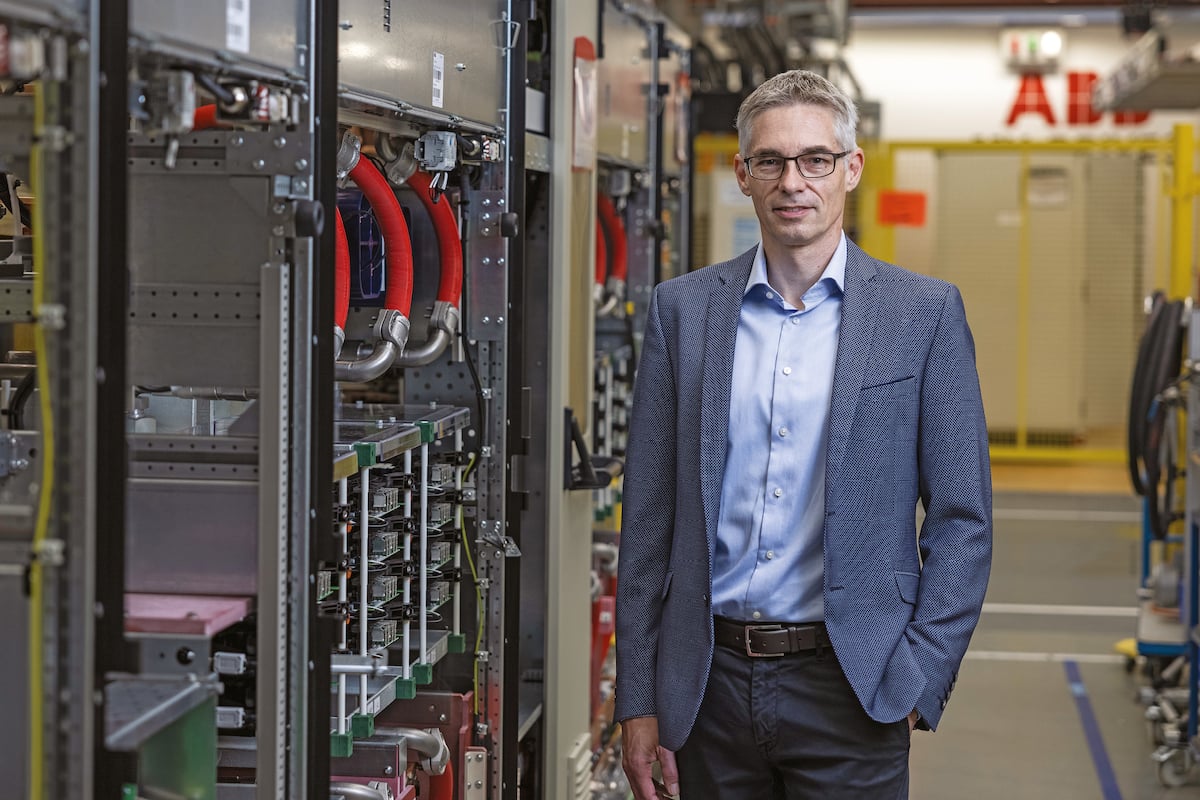Traditionally, ABB Motion Services has provided life cycle maintenance services for the motors, generators and drives it sells worldwide. But now, the division is transforming its business model by embracing digital solutions and data analysis in the cloud.

Led by Division President Adrian Guggisberg, the business employs around 3,000 people and operates in 70 countries, servicing an extensive installed base, often with the help of one of its 600 partners. That base has been the foundation of the company’s success and will continue to be a vital growth driver in the future.
Buying an outcome
At the same time, Adrian expects to see a big shift towards customers buying not just a product and service support, but also a defined business outcome. For instance, they might ask ABB to specify that individual items of equipment, or even an entire production line will be fully operational over a certain period – say, 10 years.
Under the traditional model, the customer takes on the risk of a system failing, while ABB plays a consultative role. This can sometimes mean the customer over-invests in keeping the equipment active, or does not do enough and suffers costly failures. Under the new model, ABB takes on the risk.
“We are penalised if the equipment is less available, and we are incentivised if we reach or even exceed the target,” Adrian explains. “The beauty of this is we know the equipment inside and out and we are now applying digital solutions and looking at the data, so we can predict extremely well what it means. We can tailor our services to meet the exact needs of the customer.”
We can tailor our services to meet the exact needs of the customer.
While he admits the new model is still in its infancy, there has been keen interest at the executive level from various clients. However, for the new model to work, Adrian believes digitalisation is essential. “For us to take responsibility for critical equipment and to manage risk is only possible with digital cloud-based solutions,” he says.
A practical example of this new type of service arrangement is the recent contract between ABB and Statkraft, Europe’s largest renewable energy generator. In effect, the 10-year agreement buys a specified level of uptime for two ABB synchronous condenser systems that are being installed at a site in Liverpool that will play a vital role in maintaining the stability of the UK grid.
Adrian is also moving the division from an approach to risk management that relies on analytical skills only, to one that combines analytical skills with data science and statistical models.
This is why he is keen to build new service ecosystems, including partnering with insurance companies since data driven risk assessment models are their core competence.
Winning formula
As an example, Ergo Hestia, one of Poland’s leading industrial insurers, uses the data collected by ABB digital solutions to tailor policies for customers. “We’re combining our equipment knowledge, digital service expertise, plus competence in commercial risk management,” Adrian shares.
“That will really be the winning formula for the future.” Going forward, ABB is also well-positioned in terms of sustainability. The company recently released a white paper that concluded if the entire installed base of motor-driven systems across the world converted to the latest, more energy-efficient technologies, it would reduce the global demand for electricity by 10 per cent.
“There is nothing else as impactful as high-efficiency electric motors and variable speed drives to help decarbonise industry and infrastructure,” Adrian stresses. ABB also makes a significant contribution toward reducing waste by extending the life cycles of its machines. For Adrian, knowing that his actions have a positive impact is one of the best parts of his job.
“Being in a position of doing something really sustainable, of improving energy efficiency and reducing waste – it just feels right,” he says. “It feels like something you can explain to family and friends and be proud of.”


